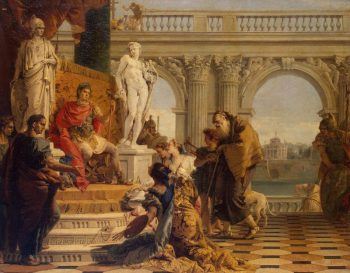P. Kishore Saval in American Affairs:
 For thousands of years, the liberal arts were not liberal, and that is why they are increasingly unwelcome in our time. An honest study of the past is unsettling in a liberal age, because a person who learns to venerate earlier cultural traditions, from Homer to the baroque, may come to venerate the values to which those traditions are devoted. And those values are a direct rebuke to the substance of liberalism.
For thousands of years, the liberal arts were not liberal, and that is why they are increasingly unwelcome in our time. An honest study of the past is unsettling in a liberal age, because a person who learns to venerate earlier cultural traditions, from Homer to the baroque, may come to venerate the values to which those traditions are devoted. And those values are a direct rebuke to the substance of liberalism.
“Liberalism” here does not refer to the modern American distinction between liberals and conservatives, both of whom are liberals in every important respect. Liberalism is a governing idea dedicated to the priority of the autonomous, rights-bearing individual—an individual defined against, rather than constituted by, a community and its inherited traditions. In the early centuries of liberalism, the commitment to this idea of the individual appeared to release enormous creativity and achieve real benefits. But few can fail to notice that liberal societies are at the end of their vitality and creative energy. It has now become apparent to many that liberalism does not work—that it has degraded our spiritual freedom, impoverished the world of meaning, and dehumanized us before the power of money. But liberalism also prevents us from finding our way out of the mess that it has created. Liberalism is only a few centuries old, yet this recent governing order is now being treated as an eternal condition of humanity from which there can be no dissent or alternative. When we attempt to diagnose our disorder, we can only do so through a prejudicial history that falsifies the past, and therefore prevents any true understanding of the present. In such a context, the destruction of an authentic liberal arts tradition is not hard to understand.
More here.
